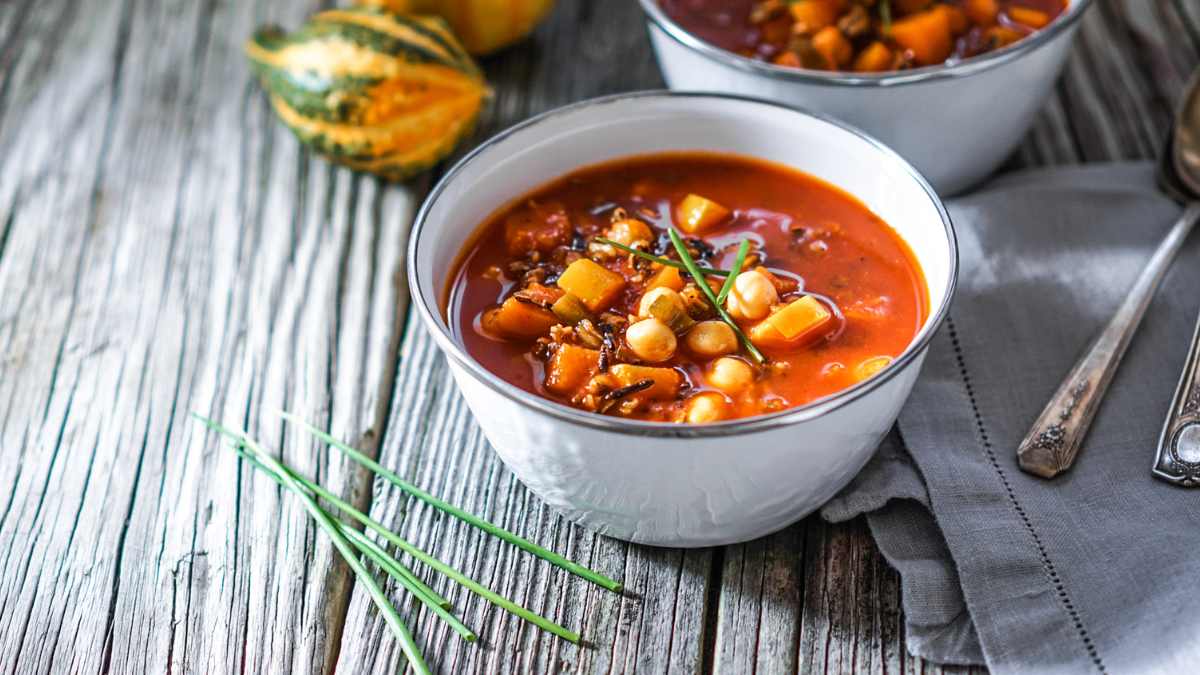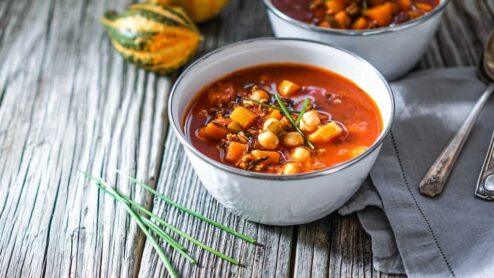Introduction: The question of whether vegetarians eat shrimp is a common one, often arising from misunderstandings about what vegetarianism entails. This article aims to clarify the dietary practices of vegetarians, delve into the nutritional profile of shrimp, and explore the ethical considerations that influence vegetarian diets.
Introduction to Vegetarian Dietary Practices
Vegetarianism is a dietary practice that excludes the consumption of meat. However, the specifics can vary widely among individuals who identify as vegetarians. Generally, vegetarians avoid eating animal flesh, which includes beef, poultry, pork, and fish. The primary motivations for adopting a vegetarian diet include health benefits, ethical concerns regarding animal welfare, and environmental considerations.
The practice of vegetarianism is not monolithic; it encompasses a range of dietary patterns. Some vegetarians may include animal products such as dairy and eggs in their diet, while others may avoid all animal-derived products entirely. The common thread among all vegetarians is the exclusion of meat from their diets.
Understanding the nuances of vegetarian dietary practices is essential for addressing questions about specific foods, such as shrimp. By examining the different types of vegetarianism and the motivations behind them, we can better understand why shrimp may or may not be included in a vegetarian diet.
Ultimately, the decision to include or exclude certain foods in a vegetarian diet is a personal one, influenced by a variety of factors. This article will explore these factors in detail to provide a comprehensive answer to the question of whether vegetarians eat shrimp.
Defining Vegetarianism: Types and Variations
Vegetarianism can be broadly classified into several types, each with its own set of guidelines and restrictions. The most common types include lacto-vegetarian, ovo-vegetarian, lacto-ovo vegetarian, and vegan. Lacto-vegetarians consume dairy products but avoid eggs and meat. Ovo-vegetarians include eggs in their diet but exclude dairy and meat. Lacto-ovo vegetarians consume both dairy and eggs but avoid meat. Vegans, on the other hand, avoid all animal-derived products, including dairy, eggs, and honey.
Another variation is the pescatarian diet, which includes fish and seafood but excludes other types of meat. While pescatarians are not considered vegetarians, this diet is often confused with vegetarianism due to its exclusion of land animal meat. It is important to note that pescatarians do consume shrimp and other seafood.
Flexitarianism is another dietary pattern that is sometimes associated with vegetarianism. Flexitarians primarily follow a vegetarian diet but occasionally include meat or fish. This flexible approach allows for the inclusion of shrimp and other seafood on an occasional basis.
Understanding these variations is crucial for addressing the question of whether vegetarians eat shrimp. While traditional vegetarians do not consume seafood, those following a pescatarian or flexitarian diet may include shrimp as part of their dietary practices.
Nutritional Profile of Shrimp
Shrimp is a popular seafood choice due to its rich nutritional profile. It is an excellent source of high-quality protein, providing all the essential amino acids needed for muscle growth and repair. Additionally, shrimp is low in calories and fat, making it a healthy option for those looking to maintain or lose weight.
Shrimp is also rich in essential vitamins and minerals, including vitamin B12, iodine, and selenium. Vitamin B12 is crucial for maintaining healthy nerve cells and producing DNA, while iodine is essential for proper thyroid function. Selenium acts as an antioxidant, protecting cells from damage and supporting the immune system.
Omega-3 fatty acids are another significant component of shrimp’s nutritional profile. These healthy fats are known for their anti-inflammatory properties and are beneficial for heart health. Regular consumption of omega-3 fatty acids has been linked to a reduced risk of heart disease, stroke, and other chronic conditions.
Despite its nutritional benefits, shrimp is not considered a vegetarian food. Traditional vegetarians avoid all types of meat, including seafood. Therefore, while shrimp can be a nutritious addition to many diets, it does not align with the principles of vegetarianism.
Ethical Considerations in Vegetarian Diets
Ethical considerations play a significant role in the decision to adopt a vegetarian diet. Many vegetarians choose to avoid meat due to concerns about animal welfare. The industrial farming practices used to raise animals for meat production often involve inhumane treatment, overcrowding, and the use of antibiotics and hormones.
The ethical concerns extend to seafood as well. Overfishing, bycatch, and the environmental impact of shrimp farming are significant issues. Bycatch refers to the unintentional capture of non-target species, including dolphins, turtles, and other marine life, which are often discarded and die as a result. Shrimp farming can also lead to the destruction of coastal habitats, such as mangroves, and contribute to water pollution.
For vegetarians who prioritize ethical considerations, the inclusion of shrimp in their diet would be inconsistent with their values. Avoiding shrimp and other seafood aligns with the goal of reducing harm to animals and minimizing environmental impact.
It is important to recognize that ethical considerations are deeply personal and can vary among individuals. While some vegetarians may choose to include certain animal products in their diet, others may adhere strictly to a plant-based diet to align with their ethical beliefs.
Common Misconceptions About Vegetarianism
One common misconception about vegetarianism is that it is a uniform practice with strict rules. In reality, vegetarianism encompasses a wide range of dietary patterns, each with its own guidelines and restrictions. This diversity can lead to confusion about what foods are permissible for vegetarians.
Another misconception is that vegetarians lack essential nutrients found in animal products. While it is true that certain nutrients, such as vitamin B12 and omega-3 fatty acids, are more abundant in animal products, vegetarians can obtain these nutrients from plant-based sources or supplements. A well-planned vegetarian diet can provide all the necessary nutrients for optimal health.
There is also a misconception that vegetarians eat fish and seafood. This confusion often arises from the pescatarian diet, which includes fish and seafood but excludes other types of meat. Pescatarians are not considered vegetarians, and traditional vegetarians do not consume fish or seafood, including shrimp.
Finally, some people believe that vegetarianism is inherently healthier than other diets. While a vegetarian diet can offer numerous health benefits, such as reduced risk of chronic diseases, it is not automatically healthier. The quality of the diet, including the variety and balance of foods consumed, plays a crucial role in determining its healthfulness.
Conclusion: Shrimp in a Vegetarian Context
Conclusion: In conclusion, traditional vegetarians do not eat shrimp, as it is considered a type of meat. Vegetarianism encompasses a range of dietary practices, but the common thread is the exclusion of animal flesh. While variations such as pescatarianism and flexitarianism may include shrimp, these diets are distinct from traditional vegetarianism.
The decision to adopt a vegetarian diet is influenced by various factors, including health benefits, ethical considerations, and environmental impact. For those who prioritize animal welfare and environmental sustainability, avoiding shrimp aligns with their values and dietary principles.
It is essential to understand the different types of vegetarianism and the motivations behind them to address questions about specific foods accurately. By recognizing the diversity within vegetarian dietary practices, we can better appreciate the personal choices individuals make regarding their diet.
Ultimately, the inclusion or exclusion of shrimp in a diet depends on one’s definition of vegetarianism and personal values. Traditional vegetarians avoid shrimp, while those following other dietary patterns may choose to include it.
More informations
- Vegetarian Society – Provides comprehensive information on vegetarianism, including definitions, types, and nutritional guidance.
- Harvard T.H. Chan School of Public Health – Offers detailed insights into the nutritional aspects of various diets, including vegetarianism.
- American Dietetic Association – A reliable source for information on nutrition and dietetics, including vegetarian and vegan diets.
- World Wildlife Fund – Discusses the environmental impact of seafood consumption, including shrimp farming and overfishing.
- National Institutes of Health – Provides scientific research and data on the health benefits and considerations of different dietary practices, including vegetarianism.


